Lee Cheuk Yiu chose his home Hong Kong Open as the venue for the first Super 500 title of his career as he won a nailbiter against Anthony Ginting on a dreadfully close final call.
By Don Hearn. Photos: Badmintonphoto (live)
As of his return home from Fuzhou last week, Hong Kong’s Lee Cheuk Yiu (pictured top) had not been having the best of years. After finishing 2018 with back-to-back semi-finals appearances in both Hong Kong and Gwangju, Lee settled into a pattern of nothing but first- and second-round exits from the outset of this calendar year. Nor was it a matter of having trouble following up any impressive opening victories with a second, as some up-and-comers experience. Instead, it was more of a slump for the 23-year-old, typified by his loss in his Macau opener two weeks ago to the world #112 shuttler.
Lee’s first and last major final, prior to this week, was actually the 2017 New Zealand. In fact, his win on that occasion was not entirely unlike the pattern he followed today against Indonesia’s Anthony Ginting (pictured right).
Anthony Ginting, by contrast, is having a very respectable year. Although he was unable to repeat as China Open champion, that Super 1000 event was one of three major finals he had reached in 2019 prior to arriving in Hong Kong. He is also just one step below his career-high ranking, sitting at #8 in the world.
On court, Ginting came out playing like the title favourite he was, roaring out to an early 10-2 lead in the opening game. Lee Cheuk Yiu took a while to settle his nerves but he was breathing down his opponent’s neck all the way through the first game, going on a 5-point run to nearly close the gap after the interval and getting to within 3 points again near the end before Ginting closed it out 21-16.
The second game was all Lee. With the crowd behind him, he romped to a 21-10 victory in the second game and the Indonesian seemed dumbfounded as the home favourite raced to a 10-3 lead early in the decider as well.
Ginting soon got his errors under control, however, and he started spreading the court, placing his smashes just out of reach of the Hong Kong shuttler. He gradually crept up and then snatched the lead on a 4-point run up to 19-18.
Lee Cheuk Yiu held his nerve in the clutch and saved a match point then held on and earned himself one. Unable to smash his way to the winning point, Lee was drawn into a tight net exchange but when Ginting was faulted for reaching his racquet over the net on his final kill, Lee claimed the Hong Kong Open title.
Korea’s boys are back
Koreans once ruled men’s doubles. In fact, the last time a Korean pair won the men’s doubles title at the Hong Kong Open, in 2015, it capped off a string of 8 straight Superseries titles by a combination of 3 different Korean pairs.
Those days are long gone, of course. Until this weekend, no Korean pair had appeared in a men’s doubles final at the Superseries or Super 500 level and above since September 2016 and that autumn saw Korea’s last three top ten pairs disappear when one member of each duo signalled the BWF of their retirement.
Things may get a little bit closer to the good old days for the Northeast Asian nation, however. Choi Sol Gyu and Seo Seung Jae (pictured above), playing in their first ever final at the Super 500/Superseries level, got the better of 3-time reigning World Champions.
The match featured 3 rather one-sided games, as Mohammad Ahsan / Hendra Setiawan (pictured left) opened up with decisive 3rd shots, soft blocks, and deceptive drops that wrong-footed the Koreans on many occasions and elicited plenty of errors, particularly from a very nervous-looking Seo Seung Jae.
In fact, Seo is the only one of the two Koreans who has been in the world’s top ten or in the final of a tournament this big, but both of those accomplishments have come to him in mixed doubles and his men’s doubles success has been on smaller stages. However, these two did beat the world #1 in this year’s World Championships and in the next two games they showed the mettle that had allowed them to pull off such upsets.
The Koreans got their nerves under control and concentrated better on not being beaten on the drops. They played spectacular defense and made their attacks count. In the deciding game, they were able to move their opponents around the court and pounced on every error and loose return this strategy produced.
Winning the deciding game by a convincing 21-13, Choi and Seo should find themselves in the top ten of the men’s doubles world rankings, the first Koreans to accomplish that since Shin Baek Cheol first retired in October 2016.
China rules the women’s finals
Following the men’s doubles, Chang Ye Na and Kim Hye Rin (pictured right) tried to duplicate the feat of their compatriots. Kim was looking for her first Super 500 title and the two of them had yet to win a tournament together.
Like Choi and Seo, they faced formidable opponents. 2017 World Champions Chen Qingchen and Jia Yifan dominated the opening game but Chang and Kim found their rhythm in the second. The Koreans snuck a peek at the lead after the interval in the deciding game but they became too passive, began to make errors, and Chen and Jia surged to take the advantage and closed out the match.
The first and last matches were the only ones with close opening games. Chen Yufei weathered a late surge by Ratchanok Intanon before the two ladies traded one-sided games. Chen took the title for the second week in a row, bringing her to six titles on the year.
In the last match of the day, Yuta Watanabe / Arisa Higashino came back from 12-17 down to take the opening game 22-20, then took the second game convincingly. It was the second title of the year for the Japanese pair, who were the only 2018 winners to repeat as champions at the 2019 Hong Kong Open.
All the winners but Chen Yufei (pictured bottom) are slated to travel next to Gwangju for next week’s Korea Masters. However, only the women’s and mixed doubles runners-up are entered in the Super 300 event, which is the last one yielding qualifying points for the World Tour Finals. All of the finalists in Hong Kong had either clinched their spots for the season finale in Guangzhou or were mathematically out of the running before this tournament began on Tuesday.
Final results
WS: Chen Yufei (CHN) [3] beat Ratchanok Intanon (THA) [5] 21-18, 13-21, 21-13
MD: Choi Sol Gyu / Seo Seung Jae (KOR) beat Mohammad Ahsan / Hendra Setiawan (INA) [2] 13-21, 21-12, 21-13
WD: Chen Qingchen / Jia Yifan (CHN) [3] beat Chang Ye Na / Kim Hye Rin (KOR) 21-11, 13-21, 21-15
MS: Lee Cheuk Yiu (HKG) beat Anthony Ginting (INA) [8] 16-21, 21-10, 22-20
XD: Yuta Watanabe / Arisa Higashino (JPN) [4] beat He Jiting / Du Yue (CHN) 22-20, 21-16
Click here for complete results
![HONG KONG OPEN 2019 – Home win a big first for Lee Cheuk Yiu! Lee Cheuk Yiu chose his home Hong Kong Open as the venue for the first Super 500 title of his career as he won a nailbiter against Anthony Ginting on […]](https://www.badzine.net/wp-content/uploads/ngg_featured/20191117_1929_HongKongOpen2019_BPRS5836_rotator.jpg)
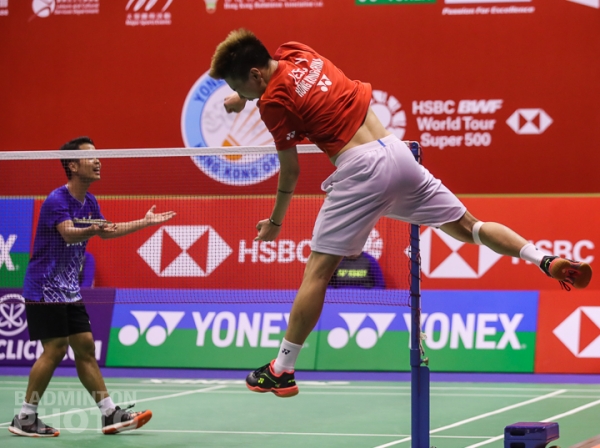
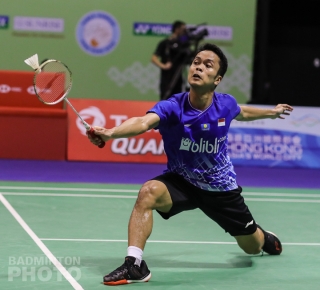
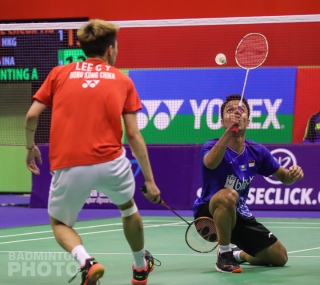
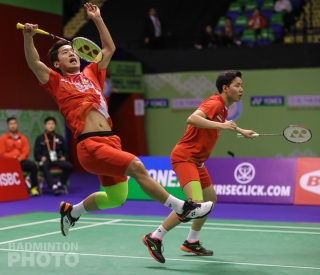
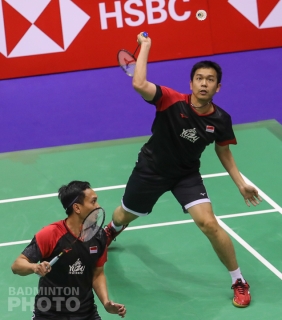
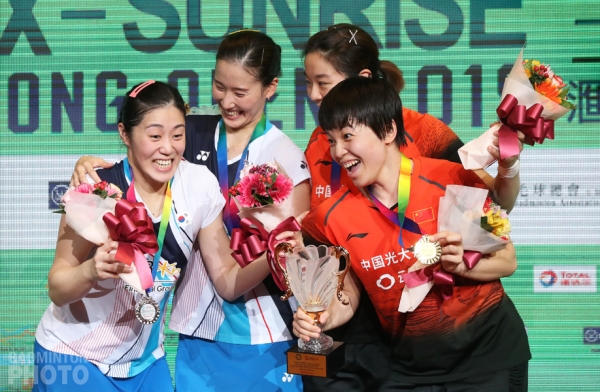
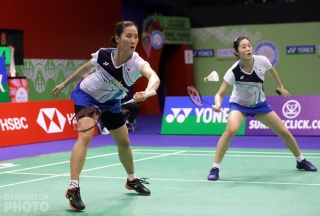
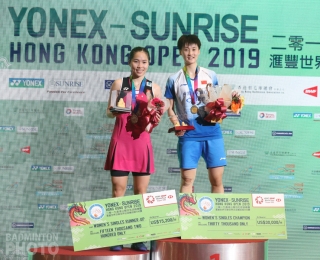
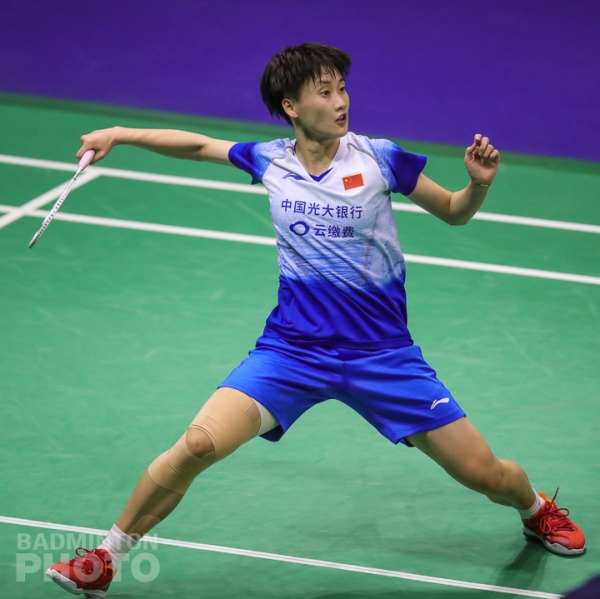

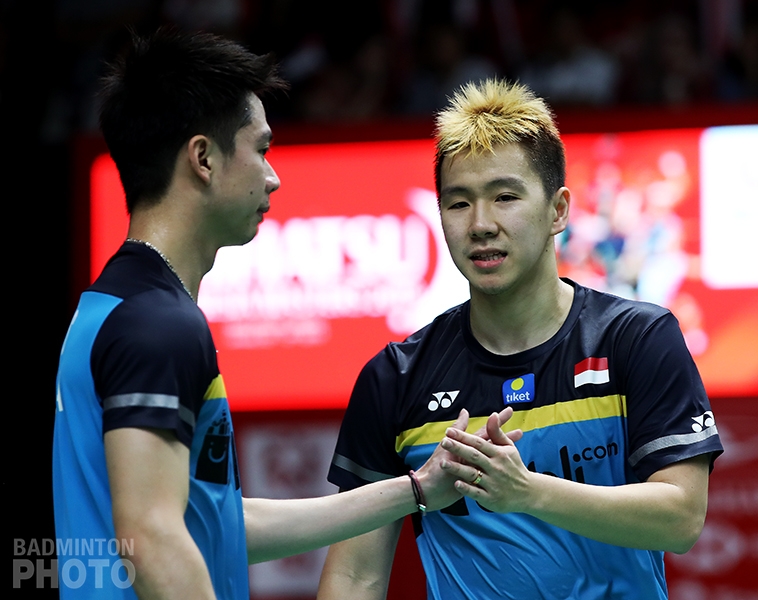
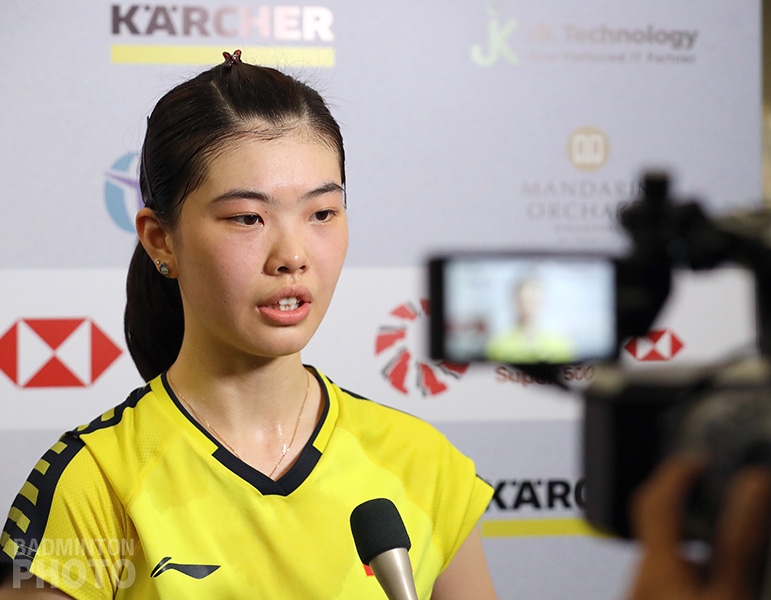
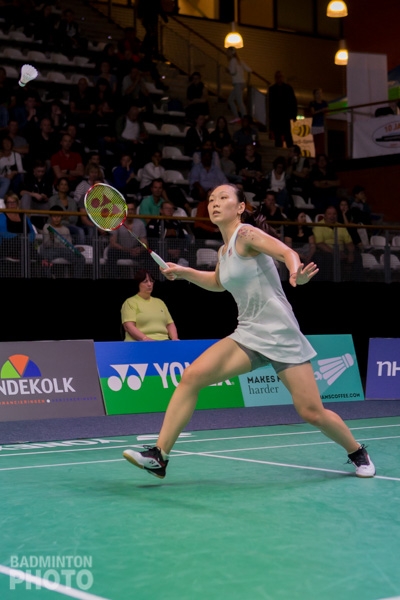
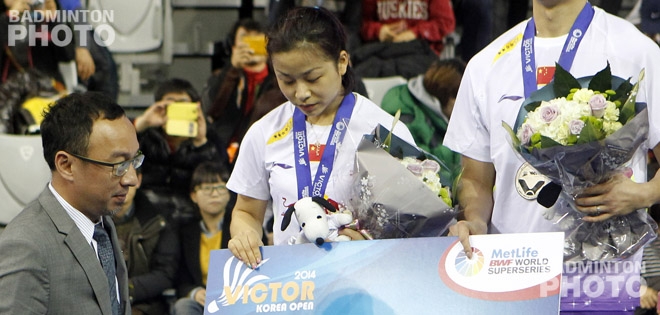
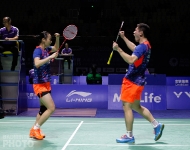
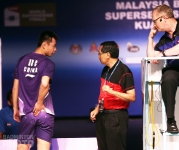
Great to see Badzine back! What do you think of the clearly incorrect call in the MS final on the last point. I was supporting LCY but this was extremely disappointing. What should the BWF do?
Thanks. It’s good to be back. The BWF cannot do anything in this particular case. There is nothing in the rule book that allows for video review of any umpire’s call with the exception of an umpire overruling a line judge’s call. Many people have expressed the wish for such a review system for calls at the net and for service faults. Players also sometimes implore the umpire to look at the big screen when they are insisting a fault should or should not have been called regarding a shuttle hitting an opponent on its way out the back. Obviously, for the BWF to implement all of these things fairly, more attention and investment would have to be made in video equipment for various angles. As it stands now, certain faults clearly show up on camera and many are not captured. Also, unlike the Hawkeye system, which exists on the main court(s) whether there is a live broadcast happening or not, the video replays we see on Youtube are caught only by the cameras of commercial broadcasters.
In this case, the umpire had to make a split-second decision, that we can analyse only with more time and with the very expensive camera setup that happened to be trained on the net on this court. I’ve seen a few incorrect calls by umpires in the past and also an amazing number of correct ones. I don’t remember seeing this type of fault on championship point, however.